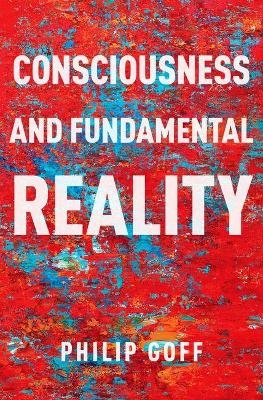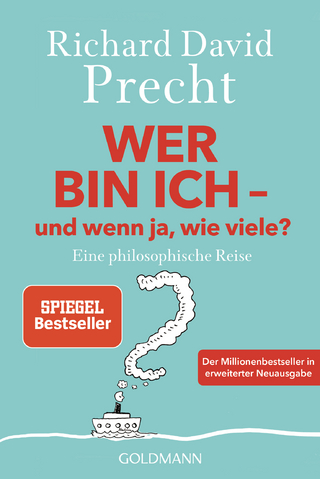
Consciousness and Fundamental Reality
Oxford University Press Inc (Verlag)
978-0-19-067701-5 (ISBN)
A core philosophical project is the attempt to uncover the fundamental nature of reality, the limited set of facts upon which all other facts depend. Perhaps the most popular theory of fundamental reality in contemporary analytic philosophy is physicalism, the view that the world is fundamentally physical in nature. The first half of this book argues that physicalist views cannot account for the evident reality of conscious experience, and hence that physicalism cannot be true. Unusually for an opponent of physicalism, Goff argues that there are big problems with the most well-known arguments against physicalism--Chalmers' zombie conceivability argument and Jackson's knowledge argument -- and proposes significant modifications.
The second half of the book explores and defends a recently rediscovered theory of fundamental reality--or perhaps rather a grouping of such theories--known as 'Russellian monism.' Russellian monists draw inspiration from a couple of theses defended by Bertrand Russell in The Analysis of Matter in 1927. Russell argued that physics, for all its virtues, gives us a radically incomplete picture of the world. It tells us only about the extrinsic, mathematical features of material entities, and leaves us in the dark about their intrinsic nature, about how they are in and of themselves. Following Russell, Russellian monists suppose that it is this 'hidden' intrinsic nature of matter that explains human and animal consciousness.
Some Russellian monists adopt panpsychism, the view that the intrinsic natures of basic material entities involve consciousness; others hold that basic material entities are proto-conscious rather than conscious. Throughout the second half of the book various forms of Russellian monism are surveyed, and the key challenges facing it are discussed. The penultimate chapter defends a cosmopsychist form of Russellian monism, according to which all facts are grounded in facts about the conscious universe.
Philip Goff is Professor of Philosophy at Durham University. His research focuses on consciousness and the ultimate nature of reality. Goff is also the author of Galileo's Error: Foundations for a New Science of Consciousness (Pantheon 2019), Why? The Purpose of the Universe (OUP 2024), and co-editor of Is Consciousness Everywhere? Essays on Panpsychism (Imprint Academic, 2022). Goff has published many academic articles, as well as writing extensively for newspapers and magazines, including Scientific American, The Guardian, Aeon, and the Times Literary Supplement.
1. The reality of consciousness
Part I: Against physicalism
2. What is physicalism?
3. The knowledge argument
4. The conceivability argument
5. Revelation and the transparency argument
Part II: Russellian monism: An alternative
6. The elegant solution
7. Panpsychism versus panprotopsychism, and the subject-summing problem
8. Top-down combination problems
9. A conscious universe
10. Analytic phenomenology: A metaphysical manifesto
| Erscheinungsdatum | 14.10.2017 |
|---|---|
| Reihe/Serie | Philosophy of Mind Series |
| Verlagsort | New York |
| Sprache | englisch |
| Maße | 236 x 155 mm |
| Gewicht | 544 g |
| Themenwelt | Geisteswissenschaften ► Philosophie ► Metaphysik / Ontologie |
| Geisteswissenschaften ► Psychologie ► Verhaltenstherapie | |
| ISBN-10 | 0-19-067701-5 / 0190677015 |
| ISBN-13 | 978-0-19-067701-5 / 9780190677015 |
| Zustand | Neuware |
| Informationen gemäß Produktsicherheitsverordnung (GPSR) | |
| Haben Sie eine Frage zum Produkt? |
aus dem Bereich


